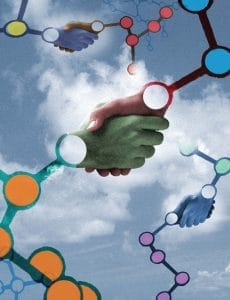 While many IB Assessor questions for MYP and DP librarians focus on research skills and academic integrity, PYP librarians are expected to support early literacy, inquiry, and transdisciplinary learning developmentally appropriately. Here are some key IB evaluation questions that an IB PYP Assessor might ask: (NOT NECESSARILY)
While many IB Assessor questions for MYP and DP librarians focus on research skills and academic integrity, PYP librarians are expected to support early literacy, inquiry, and transdisciplinary learning developmentally appropriately. Here are some key IB evaluation questions that an IB PYP Assessor might ask: (NOT NECESSARILY)
1. How Does the Library Support Inquiry-Based Learning?
- How does the library support the PYP’s transdisciplinary approach to learning? (0202-01-0600)
- Can you share an example of an inquiry-driven library session you conducted with students?
- How do you curate resources and read-alouds that encourage curiosity and questioning?
- How do you promote student agency in book selection and research projects? (0402-01-0100)
2. How Does the Library Promote Literacy and a Love for Reading?
- What strategies do you use to foster a reading culture in the school?
- How do you differentiate book selection to meet the needs of students at various reading levels?
- What reading programs or initiatives do you organize to encourage lifelong reading habits?
- How does the library support early literacy for younger students?
- How do you integrate visual literacy, storytelling, and picture books into learning experiences? (0202-01-0600, 0402-01-0100)
3. How Does the Library Support Language Development and Multilingualism?
- How does the library provide resources in multiple languages to support the school’s language policy? (0301-04-0300)
- What multilingual books, audiobooks, or digital resources are available for students?
- How does the library support English as an Additional Language (EAL) learners?
- How do you involve students’ home languages and cultural diversity in the library? (0301-04-0300)
4. How Does the Librarian Collaborate with Teachers?
- How do you work with PYP classroom teachers to support Units of Inquiry?
- Can you provide examples of collaborative planning with teachers?
- How do you ensure that the library collection aligns with the school’s Programme of Inquiry (PoI)? (0203-01-0100)
- What role does the library play in fostering Approaches to Learning (AtL) skills such as research, self-management, and communication? (0402-01-0100)
5. How Does the Library Promote Academic Integrity and Research Skills?
- How do you introduce basic research skills to young learners? (0402-04-0300)
- How do you teach students about responsible information use in an age-appropriate way?
- What strategies do you use to help students navigate digital information sources safely?
6. How Does the Library Engage Parents and the Community?
- How do you involve parents and guardians in fostering literacy at home? (0202-05-0200, 0301-01-0200)
- What family reading programs, workshops, or community reading events does the library host?
- How does the library connect with local authors, illustrators, or cultural institutions?
- What platforms (e.g., school library website or digital tools) are available for parents and students to access books and learning materials? (0202-01-0600)
7. How Is the Librarian Supported by the IB Coordinator and Leadership?
- How does the IB coordinator and school leadership support your role as a librarian? (0203-02-0100, 0201-05-0100)
- What professional development opportunities have you received in IB education?
- How do you stay updated on best practices in PYP library services and early childhood literacy?
- How does leadership ensure that library resources and staffing align with IB expectations?
8. How Do You Document and Measure the Impact of the Library?
- How do you track student engagement with books and resources?
- What kind of documentation or reflections do you keep on library lessons?
- Can you share evidence of how the library contributes to PYP units, literacy growth, or inquiry-based learning? (0301-06-0700)
Summary of Key Differences Between PYP and MYP/DP Library Inquiries
| Area | PYP Librarian Focus | MYP/DP Librarian Focus |
| Inquiry-Based Learning | Early curiosity, storytelling, and exploration | Research skills, critical thinking, academic integrity |
| Language Development | Multilingual books, early literacy | Citation, referencing, formal research databases |
| Teacher Collaboration | Aligning with transdisciplinary Units of Inquiry | Supporting Extended Essay (EE), TOK, and subject-specific research |
| Parent & Community Involvement | Family literacy workshops, read-aloud sessions | Research support, academic writing guidance |
| Academic Integrity | Age-appropriate understanding of plagiarism, digital literacy | Advanced citation methods (MLA, APA), avoiding plagiarism |
| Documentation & Impact | Reading engagement, student reflections, lesson planning | Research logs, citation workshops, IB curriculum integration |
~Assisted by ChatGpt4.0

